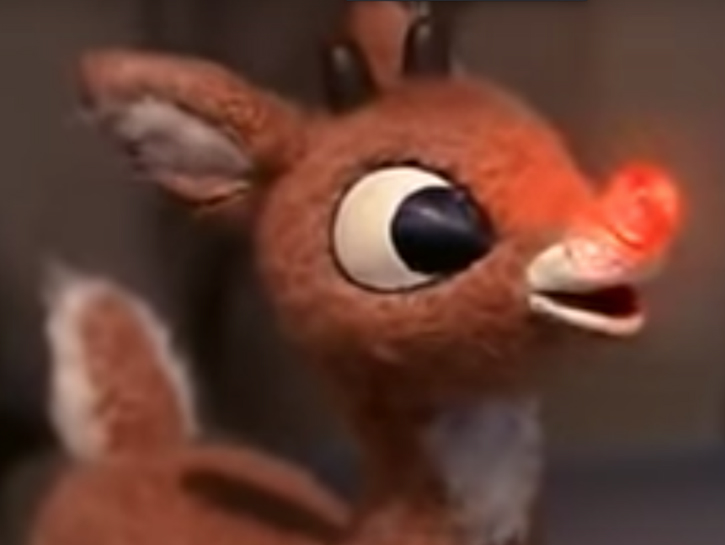A poll by the Hollywood Reporter recently found Rudolph the Red-Nosed Reindeer to be most beloved holiday film of all time according to participating American voters. Just don’t tell the Huffington Post that.
The website recently put out a video that sheds light on, supposedly, “seriously problematic” subject matter exhibited in the classic 1964 stop-motion holiday special.
The holiday TV classic "Rudolph The Red-Nosed Reindeer" is seriously problematic. 😳 https://t.co/dOgqPF3bAP
— HuffPost (@HuffPost) November 29, 2018
Many viewers have taken a deeper look into story and have taken offense to the apparent “bigotry” that several of the film’s side characters represent.
Among them are Rudolph’s abusive and non-sympathetic father, Donner (shaming his son into wearing a brown nose that covers his red one and treating his wife as secondary for her gender), the reindeer’s gym coach who encourages bullying by not allowing Rudolph to “join in any reindeer games,” the father of Rudolph’s friend Clarice (whose refusal to allow his daughter to be around a red-nosed reindeer is a representation of racism), and the father of elf, Hermey, who does not support his son’s dream to be a dentist.
Corrine Conley, who voiced the character of a talking doll in the original film, is one of many to come to its defense, saying the accusers are missing the point.
“I just can’t imagine it affecting anyone in a negative way. They must be like scrooge,” she told USA Today. “Tell them to watch Scrooge.”
Also, one who still considers himself a fan of the film is conservative pundit Ben Shapiro, who angrily attacked the accusers by breaking down the film’s overall message.
Like Shapiro, Rudolph‘s biggest defenders felt compelled to clarify that, while the film could be interpreted as expressing themes of racism, homophobia, bullying and other problematic ideologies, their inclusion is important to the story.
The subject matter is meant to expose harsh truths of mistreatment, mostly at Rudolph’s expense. Thus, the uplifting conclusion that sees the hero rising above his shortcomings and saving Christmas by using his bright, shiny nose to guide Santa’s slay during a storm teaches young viewers why such mistreatment is single-minded and wrong.
The story is about him over coming discrimination and you can’t over come discrimination if there is no discrimination in the first place so logically there should be discrimination in the story. That doesn’t mean it’s condoning or encouraging it.
— wholef00d (@eggpuff51) December 2, 2018
However, the social justice warriors even have an argument against that. Many are concerned with the conclusion of the film, claiming is that it promotes a misconstrued message that discrimination can be overcome as long as the ostracized individual has something the bigoted ones can benefit from them.
If not for that storm, Rudolph still would not get a break, even from Santa.
speaking of #rudolph, your yearly reminder… 🔴 pic.twitter.com/RAsLiIook6
— cassie ✨ (@CassMartino) November 29, 2017
Well, what do you think? Are people missing the point of this well-intentioned classic that only means to promote fair treatment, or has this been banned from for your household’s annual traditions for good? Let us know in the comments below!
